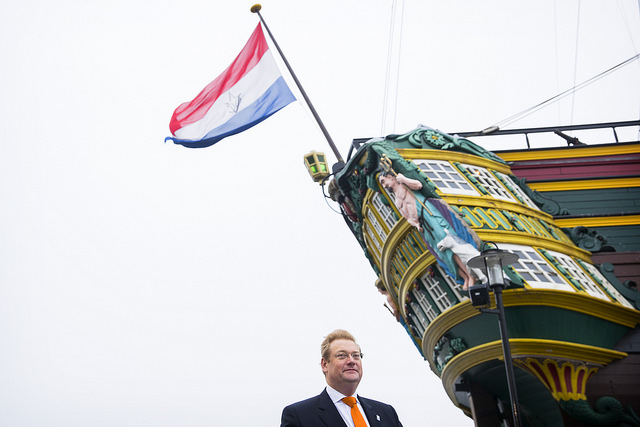Dutch EU presidency ends with a Brexit bang: what the papers say

The Dutch six month presidency of the EU would have ended as inconspicuously as it began but for the unexpected exit of Great Britain from the union. But it wasn’t the only European issue, so how did the Netherlands do? What the papers say.
Trouw opens with a lengthy analysis playing down the importance of the EU presidency. It is no longer a matter of ‘European top meetings taking place in the country concerned with a star role for the leader of that country. It is therefore unlikely that any country holding the presidency would have been able to prevent a Brexit’, the paper writes.
The paper grants the Dutch prime minister Mark Rutte some measure of success: Rutte brokered the controversial refugee deal with Turkey, holding good on his promise to bring down the number of refugees trying to reach Europe via the Balkan route. In spite of this ‘critics might say that Den Haag failed to alleviate the British distrust of the EU, if that were ever possible.’
Ukraine
The Netherlands’ own referendum woes also left Rutte open to criticism, Trouw writes. The prime minister, who had kept his mouth firmly shut in the run up to the referendum of the association treaty with Ukraine, suddenly declared himself ‘totally, totally, totally opposed’ to referenda on multilateral treaties, not a very consistent attitude, Trouw feels.
Another, perhaps Remain friendly move, was the Dutch accord on more stringent control of Europe’s outer borders, the paper notes.
The Telegraaf writes that the Netherlands ‘could have made more of the presidency.’ The good news is that ‘Amsterdam’s Dutch design show case marine complex where foreign leaders were ferried to by boat was a great illustration of the Netherlands as an innovative trading nation.’
Turkey
The refugee deal with Turkey, more stringent rules concerning the ownership and trade of fire arms, and a ‘slightly watered down’ accord on tackling tax evasion, are firmly on the Dutch credit side, the Telegraaf says, however, the scrapping of unnecessary rules and regulations – a project dear to euro commissioner Frans Timmerman’s heart – has not materialised.
According to the AD, diplomats say the Dutch worked extremely hard during the six months of the presidency. Nevertheless, ‘only 3,000 refugees were relocated when 160,000 were agreed upon,’ the paper writes.
This paper also mentions the unaccustomed speed with which the new European border and coastal guards have been strengthened.
Rutte’s main success according to the AD is the a strengthening of the internal market which should yield a growth of €12bn and a wealth of new jobs in 2018. But ‘this mega project started under Jaques Delors in 1992 still only covers some 30% of the Dutch economy,’ the paper comments.
Denmark
An unexpected blow for the Dutch was the refusal by Denmark and 10 Eastern European countries to review the paying conditions which have led to the ‘shameless exploitation of Poles, Bulgarians and Rumanians, as well as the loss of jobs for local workers.’
The Netherlands put in lots of hours (150 meetings in 175 days, and another 1500 meetings in other European countries) and NRC Next notes that although the Dutch presidency ‘went largely unnoticed’ it did generate a huge amount of work for an understaffed and overworked civil servant body.
That tiredness was also due to ‘the dreaded unknowns: surprising and unplanned developments which can dominate a presidency and can be politically explosive,’ the paper writes.
Such a development was the refugee crisis, and during the last week of the presidency, Brexit. ‘Another unknown. But it comes too late for the Dutch presidency. The wranglings that go with any divorce haven’t even started. It’s up to the Slovaks to deal with that,’ the paper concludes.
Slovakia has now taken over the revolving presidency, and will be followed by Malta next January.
Thank you for donating to DutchNews.nl.
We could not provide the Dutch News service, and keep it free of charge, without the generous support of our readers. Your donations allow us to report on issues you tell us matter, and provide you with a summary of the most important Dutch news each day.
Make a donation